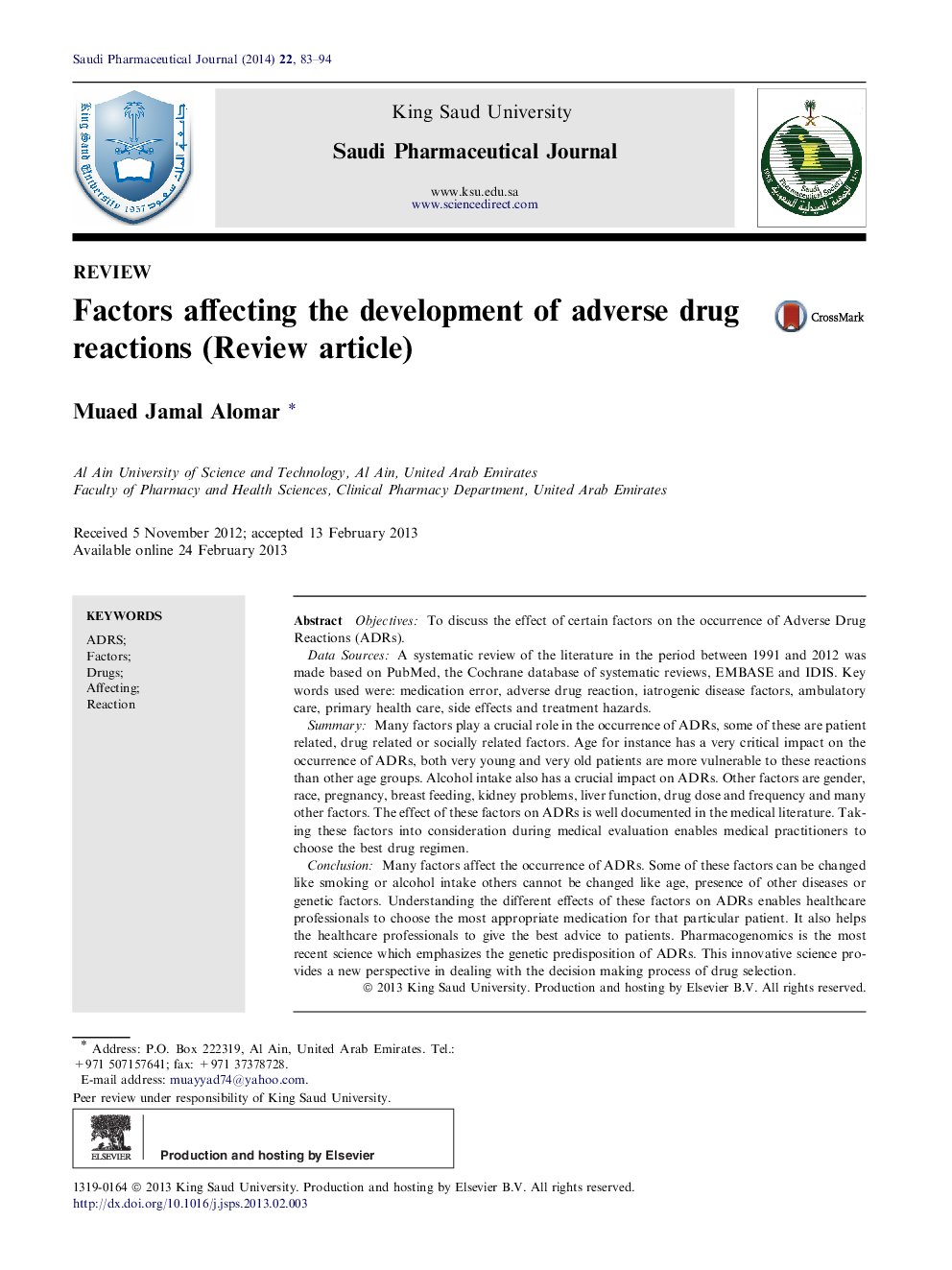| Article ID | Journal | Published Year | Pages | File Type |
|---|---|---|---|---|
| 2509422 | Saudi Pharmaceutical Journal | 2014 | 12 Pages |
ObjectivesTo discuss the effect of certain factors on the occurrence of Adverse Drug Reactions (ADRs).Data SourcesA systematic review of the literature in the period between 1991 and 2012 was made based on PubMed, the Cochrane database of systematic reviews, EMBASE and IDIS. Key words used were: medication error, adverse drug reaction, iatrogenic disease factors, ambulatory care, primary health care, side effects and treatment hazards.SummaryMany factors play a crucial role in the occurrence of ADRs, some of these are patient related, drug related or socially related factors. Age for instance has a very critical impact on the occurrence of ADRs, both very young and very old patients are more vulnerable to these reactions than other age groups. Alcohol intake also has a crucial impact on ADRs. Other factors are gender, race, pregnancy, breast feeding, kidney problems, liver function, drug dose and frequency and many other factors. The effect of these factors on ADRs is well documented in the medical literature. Taking these factors into consideration during medical evaluation enables medical practitioners to choose the best drug regimen.ConclusionMany factors affect the occurrence of ADRs. Some of these factors can be changed like smoking or alcohol intake others cannot be changed like age, presence of other diseases or genetic factors. Understanding the different effects of these factors on ADRs enables healthcare professionals to choose the most appropriate medication for that particular patient. It also helps the healthcare professionals to give the best advice to patients. Pharmacogenomics is the most recent science which emphasizes the genetic predisposition of ADRs. This innovative science provides a new perspective in dealing with the decision making process of drug selection.
